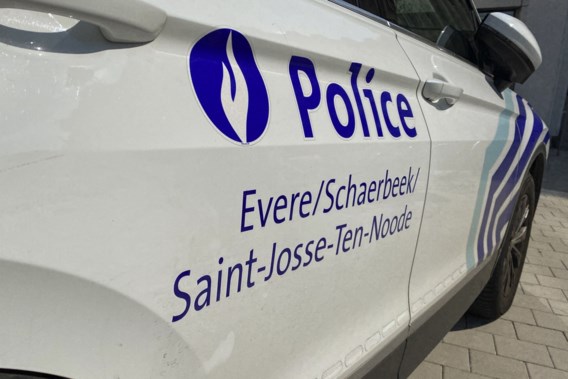The situation at Brussels North Station is no longer tenable, Schaerbeek's mayor Cécile Jodogne (Défi) says.
Drug dealing, homelessness, harassment of women, sex work and overall crime have reached levels that law enforcement struggle to deal with, according to in-depth reporting from Bruzz.
“The local cops have to fill in for the absent railway police, the Immigration Office does not foresee a solution for underage or problematic transmigrants, and soon the migrants will sleep in the cold again,” the mayor told journalists from the Dutch-language news outlet.
“When will the federal government act?”
Mayor Jodogne was interviewed by Bruzz on Thursday following the recent decision by bank BNP Paribas Fortis to hire bodyguards for its evening staff in the area, a situation she said was “obviously not normal.”
“The neighbourhood around the Brussels North Station has an amalgam of problems: drugs are dealt, there’s prostitution, there are homeless people and transmigrants, there is crime and harassment of women, and as a result of all this there is a feeling of insecurity,” the mayor said.
“There’s also the various construction works taking place in the neighbourhood, which contribute to general cleanliness and mobility problems.”
None of this is news to residents and business owners in the neighbourhoods surrounding Brussels North Station, who have long been sounding the alarm.
From shootings to broad-daylight stabbings, Brussels - and the north part of the city in particular - has always been somewhat of an anomaly in a country that otherwise boasts low crime rates.
The number of murder and manslaughter cases in the Brussels-Capital Region has been on the rise for the last decade, peaking in 2018 at 194 cases, according to figures from Statista.
While still lower than figures for many other similarly sized cities elsewhere in the world, the United States’ Overseas Security Advisory Council warns would-be travellers about crime in the city and even references the Brussels North Station by name.
Statistics and figures aside, the people who live and work in the area around the Brussels North station, along with the politicians who represent them, have long been asking for federal help in addressing the crime that impacts their daily lives.
Related News
- Residents say violence and crime getting out of hand in Brussels-North station
- Man hit in the rear during shooting in Saint-Josse
- Suspect in fatal stabbing in Brussels given psychiatric examination
The municipal councils agreed to a nightly alcohol ban in the neighbourhood, but now that autumn has arrived and winter is approaching, concerns are heightened in the face of dwindling daylight hours.
“The streets will be dark sooner, which will certainly increase the feeling of insecurity,” said Mayor Jodogne.
She said that having local police deploy more officers in the area around the station isn’t a long-term solution, as it means fewer patrols in other neighbourhoods.
“The railway police are also structurally understaffed, which means that they are not present in the station often enough,” Jodogne said.
Some of the people she and Mayor Emir Kir of Saint-Josse are turning to for help include Belgium’s Minister of Justice Vincent van Quickenborne (Open VLD), Minister of the Interior Annelies Verlinden (CD&V) who is responsible for the federal and railway police, and State Secretary for Asylum and Migration Sammy Mahdi (CD&V) and the Immigration Department (DVZ).
Much of the crime in the north of Brussels stems from the presence of so many undocumented migrants, many of whom are homeless and vulnerable to exploitation.
“I don't want to stigmatise,” Jodogne emphasised. “A lot of transmigrants in the district are themselves victims of thefts and robberies.”
She says “there is a problematic group, but it is not large: 30 to 40 people who should be sent to a detention centre. Through operations in the neighbourhood, the police have already been able to identify most of these people, but we cannot hold them indefinitely.”
The Immigration Department was notified in advance that a large-scale police operation would take place on Saturday, which would include identity checks, Jodogne said.
“With more than half of the sans-papiers we administratively detained, we received no advice. Among them, and this is the most problematic, are three underage transmigrants. ‘There is no room for these young people, let them go,’ we are often told. Yes, but where should they go?”
They say they’ve also received no response from the Justice Department when it comes to the drug trade in the neighbourhood, which has created a major nuisance.
“Drug traffickers are arrested by the local police and then immediately released,” said Jodogne.
A month after the first major appeal for federal help from mayors Kir and Jodogne, spokespersons told Bruzz that they were working on setting a date for a meeting with stakeholders in the neighbourhood.
But Jodogne says she hasn’t been told anything of the sort.
“We don't have an appointment for a meeting yet, they haven't even contacted us after our letter,” she said.

